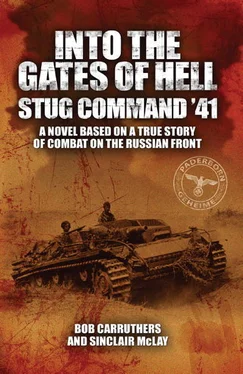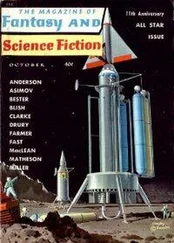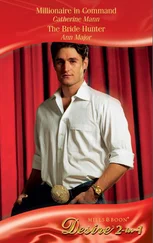Despite the shock of the blast from the number 4 gun, Knispel had already acquired his target. He calmly pressed the firing button and the round flew towards its target. As the spent cartridge was ejected the fighting compartment filled with a cloud of choking acrid smoke and fumes from the propellant charge. With so many bullets and shell splinters flying around there was no prospect of opening any of the hatches so the StuG had to remain buttoned up and the fierce heat of the explosion only added to the unbearable atmosphere inside the StuG.
“It’s a hit!” came the welcome confirmation from von Schroif.
It was almost destined to be his last utterance. As he spoke there was a crack like thunder and a piece of the wall of the fighting compartment next to von Schroif’s head, the size of a man’s fist, was dislodged and flew across the inside of the vehicle, missing Knispel by millimetres. A shaft of daylight flooded into the dim interior and von Schroif was instantly aware of what had happened. By shifting their direction to fire at the sniper, number 1 gun had presented itself side-on to a lurking anti-tank gun.
“Anti-tank gun, nine o’ clock,” called von Schroif.
Responding instantly, Junge threw the vehicle through a sharp turn. He was only just in time, as a second round struck the StuG, but this time in the thicker frontal armour. The deafening bang, the sudden rise in temperature, and the tiny shards of metal which sprayed over Junge and Wohl confirmed how close they had come to destruction.
“It’s no use, the grenadiers are nowhere to be seen,” shouted von Schroif above the din. “Order the battalion to withdraw back to their original positions.”
Once again the battalion was forced to disengage from the fighting. As they rolled back towards the assembly area von Schroif reflected on the grim lessons that had been learned that morning. In these two brief exchanges five StuGs had been either destroyed or damaged. Eighteen irreplaceable crewmen had lost their lives, more were probably wounded and others would certainly have lost their nerve. The reality was that, without the firm intervention of determined ground troops, there was simply no way that armoured fighting vehicles could make any progress in the claustrophobic environs of the Terespol fortification. As Voss had prophesised, the Sturmgeschütze were simply too vulnerable to antitank weapons at close ranges and should not have been committed to fight in what was essentially an urban environment.
- CHAPTER 5 -
Die planning und Verwirrung
DIMITRI KORSAK had slowly regained consciousness. Through the pain of his throbbing brain he was dimly aware of the detonation of distant explosions. As his recollection began to take form he scrambled out of the driver’s hatch and gazed at the capsized T-26. The wrecked machine lay on a small rise in the centre of a cornfield and Korsak could see that it was surrounded by bomb craters. He was lucky to be alive. He couldn’t understand why the Germans had abandoned their attack, he could only thank his lucky stars that they had. Turning his gaze to the south-west, in the direction of Brest-Litovsk, he could see a huge pall of black smoke which rose towering into the sky. He reached for his binoculars.
Even at this distance it was possible to feel the ground swell from the distant explosions, the largest of which could be seen rising high into the sky. Large formations of aircraft were circling the fortress while others could be seen flying deeper into Soviet territory. Another formation flew overhead and his aircraft recognition training told him that these were Dornier bombers, flying without a fighter escort. This was not good news. If the Germans could come and go at will, there must be a problem with the Red Air Force. Korsak formed the view that there must have been some kind of counterrevolution with German intervention.
Scanning the main Moscow highway he could discern a stream of German tanks and trucks moving east. Overhead, more German aircraft streamed eastwards. Peering into the wrecked tank, Korsak noted the massive jagged piece of shrapnel which had completely destroyed the radio set.
Slowly the details of his mission filtered back into his aching head. There was no way of knowing whether the mysterious bandsman was transmitting or not. Korsak decided that the only thing he could do was to make for the obvious centre of resistance. The fortress of Brest-Litovsk was only fifteen kilometres distant. He decided to abandon the rendezvous and follow his tracks to strike across country. His right hip ached, but it was the pistol in the holster hanging at his side that now attracted his attention. It seemed unnaturally heavy and the reason soon became apparent. Another large piece of shrapnel had crashed into the holster, splitting the pistol almost in two and depriving him of his only weapon. He unbuckled the worthless object, dumped it, and set off for the fortress.
* * * * *
It was not just Korsak who found himself in a predicament. The bandsman too was bemused and uncertain. Karl Wendorff stood on the tree-lined avenue and looked up helplessly at the canister containing the radio transceiver. He had tried a number of impractical approaches without success. He tried throwing stones, shaking the trunk of the tree, and had even made a couple of forlorn attempts to climb the damn thing, but nothing looked vaguely likely to succeed. “Think man, there must be a way around this!”
As he paused for thought he turned his gaze away to the south-east. There was a continuing rumble of explosions and he could clearly see aircraft in action above the huge smoke clouds which he knew to be coming from the direction of Brest-Litovsk. “Events will unfold to your advantage”, was what he had been told, but standing in the middle of nowhere, dressed as a Russian bandsman, did not have the feeling of an event which could possibly unfold to anything other than his extreme disadvantage. For once, Wendorff was to be proved entirely correct. The noise from the bombardment combined with the low flying German aircraft passing to and fro overhead was intense but Wendorff now paid little attention to his surroundings. He was so intent on solving the conundrum with the radio canister that he failed to spot the approaching Red Army truck that flew up in a cloud of dust and screamed to a halt behind him.
“What are you doing, comrade?” called an NCO from the passenger seat of the ammunition truck.
Wendorff turned around in shocked amazement. He had to think fast, and he had to think in his second language. Although his father’s family were generations old from Nuremberg, his mother’s people were mixed Volksdeutsche of Belorussian extraction. They hailed from Volhaynia, near the Soviet frontier and, as expected, German supporters had been driven out of Poland by the awful events which had followed the end of the last war. At home he had grown up hearing a mixture of German and occasional Russian. He hoped his Russian would be good enough.
“I am not certain, comrade… I lost my unit.”
“Where are you based?”
“Err… Brest-Litovsk,” replied Wendorff, remembering his cover story.
“Well, you’re in luck, that’s where we are headed. Jump in.”
Wendorff squeezed himself into the cab beside the obliging NCO and the driver roared off down the dusty lane.
“What is happening, comrade?” Wendorff asked in an attempt to cover his unexplained appearance on a country road.
“Don’t you know anything? The fascists have stabbed us in the back. They invaded at four o’ clock this morning. The fortress is still holding out though. They need ammunition. That’s what we have in the back there. So, let’s hope our fascist friends above don’t drop a bomb on us or it will be the biggest fireworks display since the revolution!”
Читать дальше












